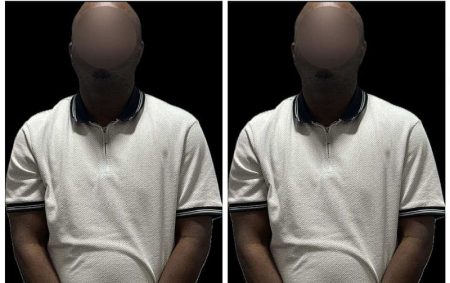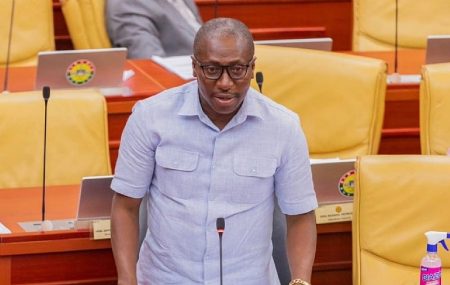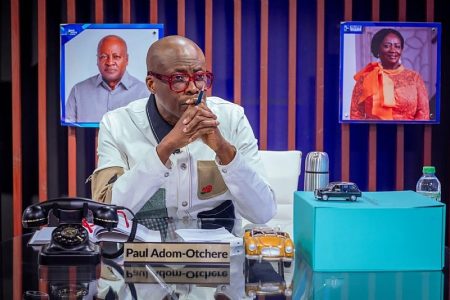The Ghanaian film industry, like many others worldwide, has grappled with issues of colorism and discriminatory beauty standards. Actress Martha Ankomah, speaking at the PCH Hangouts 2025 Edition organized by the International Central Gospel Church (ICGC), shed light on the pervasive pressure faced by dark-skinned actors to conform to these unfair expectations. Ankomah recounted her personal encounters with producers who explicitly linked skin tone to on-screen visibility. She revealed being told that her dark complexion was a detriment, hindering her ability to stand out under the film lights. This direct correlation between skin color and perceived suitability for roles underscores the deeply ingrained colorism within the industry. Ankomah’s testimony serves as a critical indictment of a system that prioritizes lighter skin tones, perpetuating a harmful narrative about beauty and worth. Her experience resonates with broader societal biases that equate lighter skin with desirability and success, often marginalizing darker-skinned individuals.
Ankomah’s revelations extend beyond personal anecdotes, highlighting a systemic issue within the Ghanaian film industry. She observed a noticeable trend of skin lightening among actors, directly attributing this to the pressure to conform to perceived beauty standards and secure roles. This widespread practice of skin bleaching, often driven by industry pressures and societal prejudices, underlines the damaging consequences of colorism. Actors, feeling compelled to alter their natural appearance, resort to potentially harmful practices to enhance their chances of success. This highlights the power dynamics at play, where individuals are forced to compromise their health and self-image to navigate a prejudiced system. Ankomah’s observations paint a concerning picture of an industry that prioritizes superficial aesthetics over talent and diversity, contributing to a homogenized representation on screen and perpetuating harmful stereotypes.
Despite facing considerable pressure, Ankomah remained steadfast in her refusal to bleach her skin. She credits her strong Christian upbringing for instilling values that prioritized self-acceptance and inner beauty over societal pressures. Raised in a household shaped by both Adventist and Pentecostal influences, Ankomah developed a deep-rooted faith that provided a moral compass. This foundation, she explained, helped her navigate the complexities of the industry and resist the temptation to compromise her beliefs. By attributing her resilience to her faith, Ankomah highlights the importance of strong personal values in combating societal pressures. Her story demonstrates the power of self-belief and the strength derived from a supportive upbringing in navigating challenging environments.
Ankomah’s decision to resist skin bleaching can be viewed as a powerful act of defiance against the prevailing prejudices within the industry. In a system that often marginalizes darker-skinned individuals, her unwavering stance serves as an inspiring example of self-acceptance and a challenge to conventional beauty norms. By refusing to conform, she implicitly critiques the industry’s narrow definition of beauty and advocates for greater inclusivity and representation. Ankomah’s resilience not only reinforces her personal values but also sends a powerful message to aspiring actors and the wider community, encouraging self-love and challenging the status quo. Her story highlights the potential for individuals to create positive change within their respective industries by standing up for what they believe in.
The implications of Ankomah’s revelations extend beyond the Ghanaian film industry, touching upon broader societal issues of colorism and beauty standards. Her experiences underscore the deeply entrenched nature of these prejudices, which perpetuate harmful stereotypes and limit opportunities for individuals based on their skin tone. The pressure to conform to Eurocentric beauty ideals, evident in the film industry, reinforces a hierarchy of beauty that privileges lighter skin, contributing to a sense of inadequacy and marginalization among darker-skinned individuals. Ankomah’s testimony, shared on a platform provided by a prominent religious institution, further amplifies the importance of addressing these issues and promoting inclusivity and self-acceptance.
Ankomah’s public disclosure at the PCH Hangouts 2025 Edition serves as a catalyst for much-needed dialogue within the Ghanaian film industry and beyond. By bravely sharing her experiences, she has opened up a conversation about colorism, its impact on actors, and the need for systemic change. Her story provides a platform for further discussion about diversity and representation in the media, challenging the industry to move beyond narrow beauty standards and embrace a more inclusive approach to casting and storytelling. Ankomah’s willingness to speak out, coupled with the forum provided by the ICGC, creates an opportunity for constructive dialogue and potential action to address these deeply rooted issues. Her story underscores the importance of using platforms to amplify marginalized voices and advocate for meaningful change in industries and society as a whole. It also highlights the role religious institutions can play in fostering discussions about social justice and equality.














